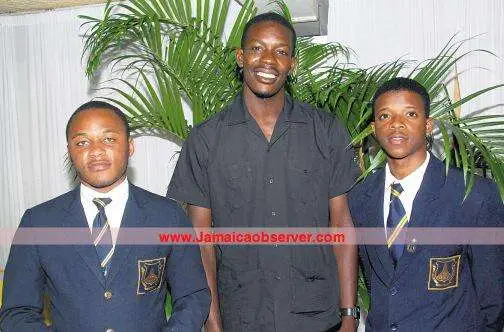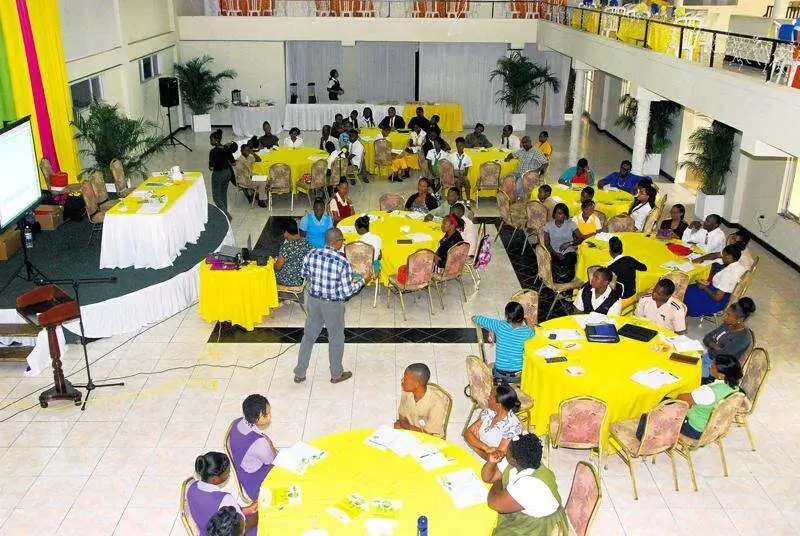
Climate talk
MANDEVILLE, Manchester — Students in Manchester and St Elizabeth were this month given a chance to add their voice to climate change discussions and make recommendations that could in future be included in the National Climate Change Policy Framework, now awaiting parliamentary approval.
The students were part of a series of regional youth workshops held across the island, organised through the Jamaica Rural Economy and Ecosystems Adapting to Climate Change (Ja REEACH) project.
The Ja REEACH Project is a three-year United States Agency for International Development (USAID) – funded initiative using varying interventions with different groups in Jamaica to build awareness and resilience about the impacts of climate change.
To ensure sustainability of the efforts at youth empowerment through the climate change workshops that is preparation for a Youth Climate Change Conference in September, the ministries of Education; Water, Land, Environment and Climate Change; and Youth and Culture are partners in the project.
Organisers from Ja REEACH say that the workshops will guide the creation of proposals to implement “climate-smart” actions in schools.
Mirroring the United Nation Conference of the Parties, it is expected that teams from the participating schools islandwide will negotiate on the proposals from the workshops at the Conference of the Parties for Schools, which will be a main feature of the upcoming youth conference to be held at the Jamaica Conference Centre in Kingston.
Suitable recommendations from the conference will then be included, if necessary, as part of the National Climate Change Policy Framework even if it is already approved by Parliament, according to stakeholders.
The participating secondary schools in the Ministry of Education Region 5 (Manchester and St Elizabeth) leg of the Ja REEACH workshop held at the Golf View in Mandeville were Holmwood Technical, Christiana High, Munro College, Bishop Gibson High, Mile Gully High, St Elizabeth Technical High School, Spalding High, Porus High, Lacovia High, Newell High, Belair High, BB Coke High, May Day High, Sydney Pagon Agricultural High School, Winston Jones High, Balaclava High, and Manchester High.
Clifford Mahlung, retired meteorologist and project administrator in the Climate Change Division of the Ministry of Water, Land, Environment and Climate Change said that other bodies have given their contribution to the National Climate Change Policy Framework but a youth input was missing because there was no mechanism, prior to the workshops, for that to happen.
He told the audience that he likes talking about climate change issues in Manchester because the parish is a good example of the negative effects. He also added that there was a time when Mandeville was much cooler and places in Christiana even required fireplaces for homes to be warm, at certain periods during the year.
Mahlung said that increasing beach erosion in Alligator Pond in Southern Manchester and areas of Southern St Elizabeth is due to climate change causing the sea level to be higher, stronger hurricanes when they come and the more powerful storm surges.
Michael Mitchell, a fourth former at Porus High School used the workshop to express his concern that mined-out bauxite lands in Manchester were replenished with grass instead of trees which are better for restoration, hence contributing to the effects of climate change in the parish.
Christiana High School head boy Ricardo Gouldbourne told the Jamaica Observer Central that he is not only keen on seeing students from his school participating in the Youth Climate Change Conference but his personal aim is to find opportunities to debate on climate change issues, build a career in the field later and eventually explore his political ambitions in order to further impact policy decisions on the issue.


























